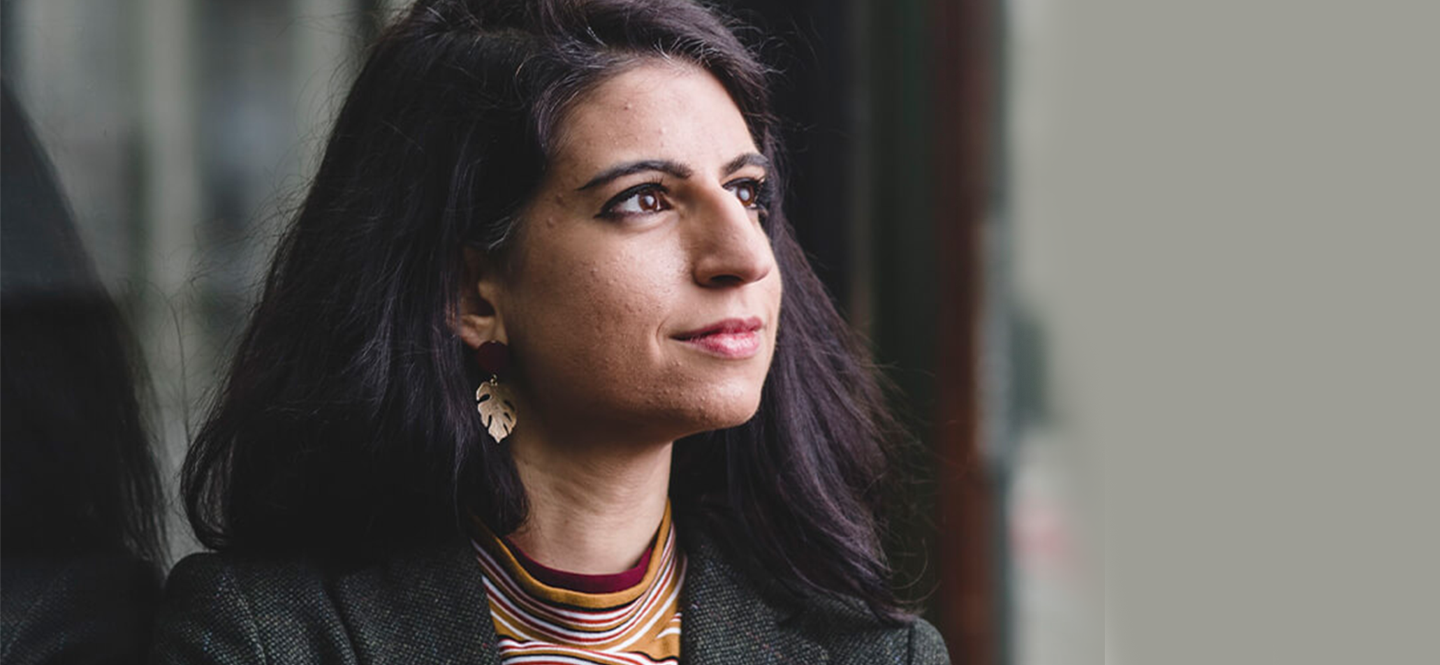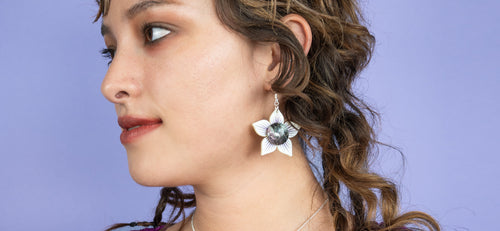Meet Noreen Masud

Calling all readers: the 2024 Women’s Prize Winners are in and what a night it was as literary lovers flocked to London to celebrate women’s voices!
Following last year’s official collaboration where we transformed former Women’s Prize-winning books into collectable pendants, we’re thrilled to partner again to celebrate this year’s categories: Fiction and the very first prize for Non-Fiction. From glistening pen nibs with shimmering green and purple ink drops to graphic apostrophes, take your pick from exclusive Tatty Devine X Women’s Prize jewellery available here and via the Women’s Prize gift shop at Women’s Prize LIVE.
Calling all avid readers, audiobook lovers, and holiday bookworms, we’re thrilled to sit down with author and Women's Prize for Non-Fiction nominee Noreen Masud for an exclusive Q&A as she discusses her book, A Flat Place, the inspirations behind her work, and “flatness for all”! Read on below…

How did it feel to be nominated for the 2024 Women’s Prize for Non-Fiction?
I still can’t believe I’ve been nominated. It never occurred to me that I’d even be eligible for it! I was incredulous (and delighted!) to be longlisted; being shortlisted feels like an impossible dream. The other writers on the shortlist are absolute stars in their fields, and I’m so dazzled to be considered alongside them. I’m reading my way through their books, and they’re all extraordinary – I will be honoured to lose to any one of them!
When and how did you know you were ready to embark on writing A Flat Place?
I’d been trying to write an account of my strange early life in Pakistan since I was 14, when some of the events (or non-events) described in the book were actually happening. I tried again at 30. Both times, it sputtered out, because I couldn’t work out how to make the narrative work. Stories are usually hinged on events: concrete, dramatic occurrences, or incidents which wider society recognises as ‘important’. But my story didn’t seem to have any dramatic events. It was like a flat landscape with no focal point to look at – yet a very intense landscape, from which, somehow, I couldn’t look away. So when my now agent emailed me and suggested I wrote a book for a non-academic audience about flat landscapes (which is one of my research interests in my academic role at the University of Bristol) I jumped at the chance. Together, we worked out that flat landscapes were the missing image that I needed to make the experience of complex post-traumatic stress disorder (cPTSD) tangible.
A Flat Place explores the parallels between stark literal landscapes and recollections of your own early life: where do you anticipate your next literary journey take you?
I have three little irons in the fire. I’ll give you a hint for each one. First: altruistic kidney donation. Second: ‘death-cleaning’ (often called Swedish death cleaning: where you tidy up in advance of your own death to get everything organised). Third: a bucket full of bones. Writing them down, I realise they all seem very gothic, don’t they? Hmm. Something for me to ponder.

When it comes to your writing process, do you have a 'working wardrobe' of go-to outfits or accessories that help you get in the right headspace for creativity?
I love dressing up, and get a lot of pleasure out of clothes. But I’m going to be absolutely honest. My working wardrobe of go-to outfits which helps get me in the right headspace for creativity is: pyjamas. Cotton ideally. Very soft. Very feral. I have a pair of faded purple pyjama trousers which I got for free at a mutual aid ‘freecycle’ event in Newcastle, and the day those finally rip at the crotch will be a tragic one. Possibly that will be the last day I ever write.
When I write I want to vanish into the work: to become unaware of my own appearance to other people, accountable purely to my ideas and my sensations. So I can’t write properly in hard trousers, or with makeup on (I rub and touch my face constantly when I’m thinking), or with shoes on my feet. I often wander around the Arts Complex here at Bristol with a shoe on one foot and a slipper on the other. Even that is a compromise. I’d rather be in socks.
In terms of accessories: I have worn a yellow Casio watch for about 4 years, and feel unmoored without it. I also like to have as many hairbands as possible on my wrists, in case I need to tie my annoying hair up out of my face.

If you were to design a personalised Name Necklace inspired by your book, which word would you pick and why?
It would have to be the word ‘flat’, wouldn’t it? I find the idea of wearing a necklace saying ‘flat’ so funny. ‘Flat’ is an interesting word: to say you’re feeling ‘flat’ is to say that you’re feeling empty or lacking. But to say something ‘flatly’ is to say it with tremendous emphasis. So it’s a word which encompasses both ‘totally empty’ and ‘completely full’. I love that complexity: it mirrors the feelings I have about flat landscapes.
And I also like how rebellious it would be, to wear the word ‘flat’ around your neck. Women in particular aren’t allowed to be flat. We have to be warm, enthusiastic, interested, kind, helpful – we’re not really allowed to be just neutral. That’s usually read as being hostile. Men are allowed to be flat without being judged, and I don’t think that’s fair! Flatness for all!
(And I’d make the word red, because red is the best colour.)
We love to share our favourite reads - if you can pass on just one favourite book by a female writer to each of our community, which would it be?
Everyone should read Minor Detail by Adania Shibli. Barely more than a hundred pages, both its literary skill and its searing political incisiveness make it a must-read.
Thanks, Noreen - wishing you the very best of luck! Inspired? Keep up with Noreen over on X, discover official Tatty Devine X Women’s Prize book jewellery here, and shop NEW designs exclusive to the Women’s Prize now.
Related articles

A New Era for Tatty Devine in Covent Garden
Despite trying everything in our powe...

